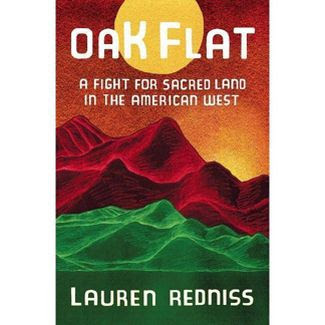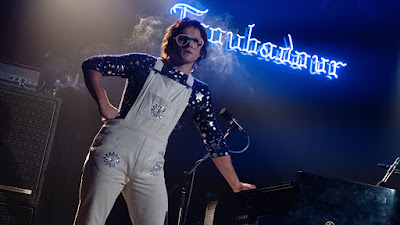tops of 2019
Hello from the tail end of what I think was a
good year? I’m too superstitious to make proclamations, and hindsight usually
doesn’t kick in till a few years out anyway. I’m not so into the personal
decade-in-review blurbs people are offering up on Twitter. The same people who
call out privilege all day long seem awfully quick to boast about their
triumphs as if they’re not the result of good luck and not dying.
Anyway.
AK, Dash, and I just got back from a three-day trip, two of which were spent in Cambria at my brother-in-law’s family vacation house, and those days were excellent ones to end on. My sister is the only person who can take care of me in the exact way I need without eliciting a parallel guilt reaction. She mimics my mom in all the right ways. And her husband, David, is a natural caretaker too, eager to share his ancestral home with newcomers, to feed them fancy cheese and cook hash browns and tell the story of the time he scratched up his grandparents’ banister by sliding down it in zippered pants. I felt myself decompress in a way I hadn’t all year, my soul unfurling from its tidy carrying case and rising like heat in their high-ceilinged living room.
We watched the new What We Do in the Shadows and walked down to the rocky beachfront and took our traditional booze cruise around Morro Bay. We ate really good seafood at an old family-owned spot called Dockside, and I laughed more than I have in a long time.
Today I’m back home, polishing the rough edges off my memoir while AK and Dash ring in the noon New Year at Kidspace, and hoping there aren’t major structural issues with the book. Time is a construct, and also the only thing that’s real, and I want to declare Draft 1.5 DONE today. I’m taking this interlude to bring you my annual roundup of cultural recommendations, things I took in this year that may or may not have been produced this year. Keep in mind that I didn’t see most movies or read the Hot New Books, but books, movies, TV, and podcasts still kept me going. Here goes.
Oak Flat by Lauren Redniss: With gorgeous red-purple Southwestern skies and near-ghost towns drawn in colored pencil, this book--about Apache efforts to protect sacred land from copper mining companies in Arizona--is utterly original in form and urgent in content.
Anyway.
AK, Dash, and I just got back from a three-day trip, two of which were spent in Cambria at my brother-in-law’s family vacation house, and those days were excellent ones to end on. My sister is the only person who can take care of me in the exact way I need without eliciting a parallel guilt reaction. She mimics my mom in all the right ways. And her husband, David, is a natural caretaker too, eager to share his ancestral home with newcomers, to feed them fancy cheese and cook hash browns and tell the story of the time he scratched up his grandparents’ banister by sliding down it in zippered pants. I felt myself decompress in a way I hadn’t all year, my soul unfurling from its tidy carrying case and rising like heat in their high-ceilinged living room.
We watched the new What We Do in the Shadows and walked down to the rocky beachfront and took our traditional booze cruise around Morro Bay. We ate really good seafood at an old family-owned spot called Dockside, and I laughed more than I have in a long time.
Today I’m back home, polishing the rough edges off my memoir while AK and Dash ring in the noon New Year at Kidspace, and hoping there aren’t major structural issues with the book. Time is a construct, and also the only thing that’s real, and I want to declare Draft 1.5 DONE today. I’m taking this interlude to bring you my annual roundup of cultural recommendations, things I took in this year that may or may not have been produced this year. Keep in mind that I didn’t see most movies or read the Hot New Books, but books, movies, TV, and podcasts still kept me going. Here goes.
Oak Flat by Lauren Redniss: With gorgeous red-purple Southwestern skies and near-ghost towns drawn in colored pencil, this book--about Apache efforts to protect sacred land from copper mining companies in Arizona--is utterly original in form and urgent in content.
Roma: I know it came out last
year, but I didn’t see it until March. (And the book above doesn’t come out
until spring of 2020, but I got my hands on an ARC. CALENDARS ARE A CONSTRUCT.)
This movie is sweeping and epic and personal. It centers an indigenous housekeeper
and nanny, and depicts washing dishes and hugging children as the quietly
heroic acts they are.
Us: I definitely don’t want to
see this movie again, but I’m so glad I saw it once. It’s riveting and
terrifying, a perfect allegory for the randomness of injustice and the efforts
people make to deny the legacies to which we’re all still tethered.
Delicious
Foods by James Hannaham: This book shares some traits with Us, actually, in that
it’s weird and scary and reveals how slavery is still with us. Narrated by
crack (yes, the drug), Delicious Foods is the story of how a big
agricultural company leverages addiction and creates a maze of subcontractors
to get away with enslaving workers. It seems too bizarre to be true, but this
shit happens.
Spider-Man: Into the
Spider-Verse: Another 2018 movie, but I
can’t not mention how brilliantly this movie wed comic book illustrations with
3D animation, and what a beautiful tribute it is to the powers of both
mentoring and self-actualization. I say this as someone who cannot even tell
you who belongs to the Marvel Universe and who is a DC Comics character.
Operatic by Kyo Maclear, illustrated by Byron Eggenshwiler: Maclear is a master of picture-book poetry, and here she brings her
talents to a middle grade graphic novel about marginalized kids finding
themselves in music. Byron Eggenshwiler’s illustrations are a perfect
accompaniment, equal parts high drama and subtle detail.
 |
| House of Anansi Press |
Good
Talk by Mira Jacob: Jacob’s funny, touching memoir about talking to her kid and her
Trump-supporting in-laws in the wake of the 2016 election is one of those books
that had me nodding along, feeling like I was part of the conversation. It’s
the rare book that suggests we can find common ground as a country without just
splitting the difference and throwing marginalized populations under the bus.
Fleabag: I’m still not sure I liked this series quite as much as everyone
else did, but I liked it very, very much. Sometimes I think I struggled to
watch it because it hit too close to home. Sisters struggling to get on with
life after their mom dies of cancer? Check. One is very successful but high
strung, one is bad with money and always says the thing she’s not supposed to?
Check. For Christmas, AK gave me a key chain with one of the show’s concluding
statements: Love is not something weak people do. No, it’s not.
Unbelievable: Toni Collette and Merritt Wever would be reason enough to watch
just about anything, but this series also has true crime, feminism, and a
satisfying ending following an expose of the “justice” system’s most
infuriating elements.
Rocketman: A few scenes in, my face
lit up. No one told me it was a musical musical! But it is. So well
done. So moving. So singable. So, so gay. Taron Egerton as circa 1970 Elton
John is precisely my type.
Getting On: If Fleabag is about
someone fucking up her life in the sexiest way possible, the American version
of this British show about a long-term care unit makes a tragicomic unsexy
counterpart. Every character fancies themself a good person, but is horribly
petty and selfish in the execution. I relate.
White
Lies: A true crime podcast that is about so much more than whodunit. The
Alabama-native investigative journalists at the helm examine the culture of
silence that kept the 1965 murder of white civil rights activist Rev. James
Reeb from being solved. I was particularly fascinated by how medical
misunderstanding (namely that hematomas get worse over time) dovetailed with
racism to create a conspiracy theory. And the final episode, in which the
descendants of Reeb and the murderer meet, is a beautiful and hopeful example
of intergenerational healing.
Silver
Sparrow by Tayari Jones: I read this early in the year, and it stayed with me. A novel
about a mistress’ daughter that reads like a memoir. Jones is razor-sharp in
her dissection of domestic power dynamics.





Comments